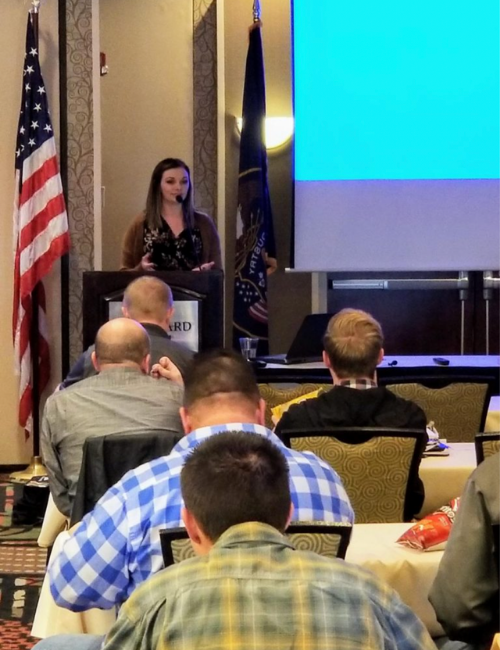March 8, 2020
This International Women’s Day, the American Concrete Pipe Association celebrates the women who help make the concrete pipe industry as strong as the products we produce. Their contributions are significant. Their presence and technical skills diversify and improve our industry so we can continue to provide a vital service and range of products for America’s network of sanitary and storm sewers and culverts.
We’ve asked a few extraordinary women from the concrete pipe industry to share what they love about the industry and engineering in general, in hopes that their stories will inspire more women to take up the mantle and discover a rewarding career in engineering. Most are engineers, but a couple are not; rather, they work in a highly technical capacity supporting the people and projects in our industry. Learn more about them below.
Heather Christensen, EIT
Technical Marketing Manager, Geneva Pipe & Precast A Northwest Pipe Company
Based in Utah, Heather Christensen provides technical training to engineers on reinforced concrete pipe and other precast structures including manholes, catch basins, box culverts and more. Heather says she became an engineer to make a difference: “I am excited to play a role in providing our nation with security, longevity and resilience so our society can continue to thrive for generations to come.”
What’s your favorite thing about being an engineer? I have always enjoyed the STEM field because I have been fascinated by science and math. However, as I’ve gained more time and experience working as an engineer, I have begun to realize just how much of our societal functions depend on our line of expertise. It feels good to know that I can be part of that.
What do you like most about working in the concrete pipe industry? I love learning about and becoming involved with the production of resilient and sustainable underground infrastructure. Concrete pipe is a great option for providing a long-term, structural solution for handling stormwater and sanitary sewer collection, and the concrete pipe and precast industry has a long, proven history. The importance of underground infrastructure often gets overlooked by society because it is out of sight. I have really enjoyed playing a part in ensuring it is well-considered and properly designed to provide adequate infrastructure for future generations.
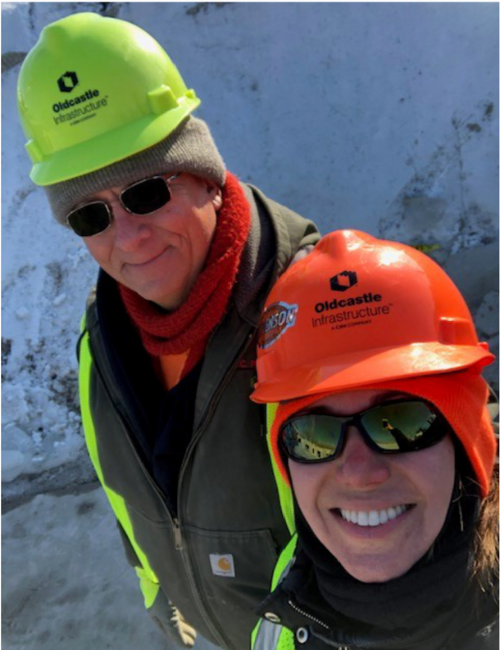
Dorothy Ciesielski
Territory Manager – Stormwater, Oldcastle Infrastructure
Based out of Oldcastle Infrastructure’s Chicago office, Dorothy Ciesielski provides products and solutions for stormwater detention, pretreatment and treatment to clients in Illinois and Wisconsin. “I have always had a passion for helping people with innovative solutions, and I get to do that daily at Oldcastle Infrastructure.”
What’s your most memorable project? Projects differ from job to job, and they have all been innovative and exciting. The relationships built and the experience gained are priceless. With that said, one standout was the Hub Group project [Oak Brook, Ill.], which was part of a green initiative using our StormCapture detention system for stormwater harvesting and specifically focused on meeting DuPage County detention requirements.
If you were talking to a group of high school girls, what would you say to encourage them to become an engineer? I would tell them to follow their dreams and know the value they bring to the companies they represent. It is an exciting and innovative industry where women are getting recognition.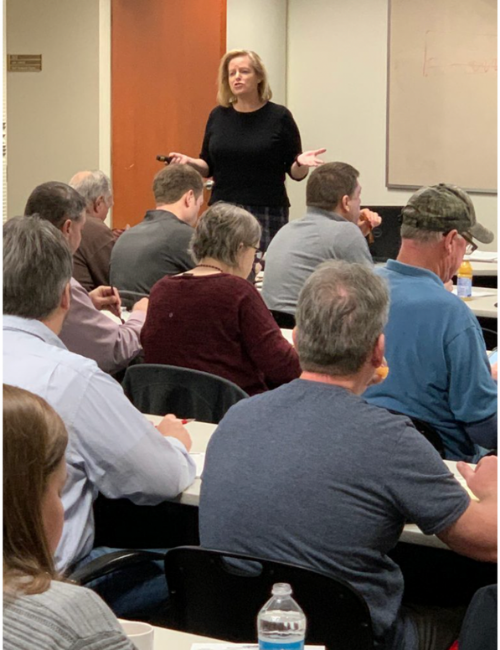
Robin Denman
Director of Marketing, Northern Concrete Pipe
A 21-year industry veteran, Robin Denman provides technical training on the design and installation of Northern Concrete Pipe’s precast products to civil engineering firms, municipalities and state transportation departments. She is currently chair of the American Concrete Pipe Association’s Education Committee and has served on several other committees in the past, including the Marketing Committee and Technical Committee. In 2008, she was the first woman to win the ACPA’s Richard C. Longfellow award. While she says the industry still tends to be male-dominated, “women are encouraged to get involved at all levels.”
If you were talking to a group of high school girls, what would you say to encourage them to become an engineer? Opportunities for young women today are limitless, and women in engineering are no longer an anomaly. Decide what you have a passion for and pursue it—if you study hard and learn all you can, you will truly be successful.
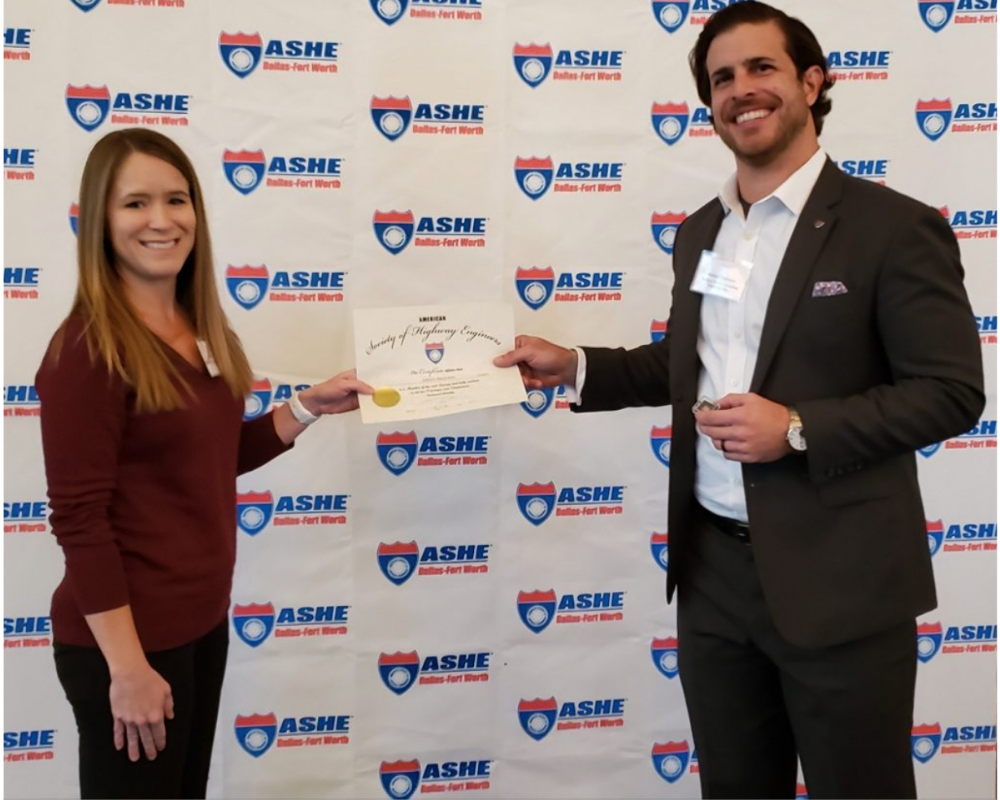
Ashley Isaacson, EIT
Technical Resource Manager, Forterra Pipe and Precast
A mechanical engineer based at the Grand Prairie, Texas, office of Forterra Pipe and Precast, Ashley Isaacson is currently pursuing a master’s degree in civil engineering “to be as knowledgeable as I can when communicating with other engineers in the industry.”
What’s your favorite thing about being an engineer? I love having the ability to continue to learn and challenge myself while utilizing abilities that are not inherent to everybody.
What do you like most about working in the concrete pipe industry? The industry has stood the test of time and continues to strive for excellence in quality, safety and integrity.
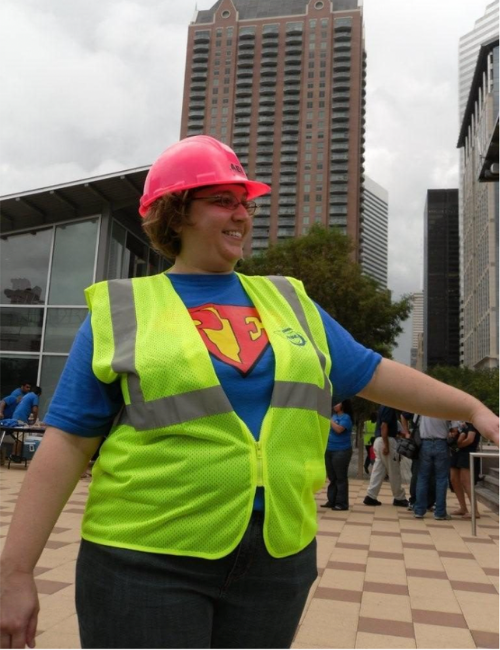
Liza Kirk, PE
Technical Resource Engineer, Forterra Pipe & Precast
Liza Kirk provides technical marketing for Forterra’s concrete pipe and precast products in the Houston, Beaumont and Bryan/College Station areas of Texas. Underground utilities are her passion, but she says many people are surprised to learn she’s an engineer: “There are many ways to practice engineering. There is a human element; it isn’t just about calculations and designs.”
What’s your favorite thing about being an engineer? The opportunities! While on vacation in Germany, once they learned I was an engineer, I was offered a tour of a concrete research institute that was not normally open to the public. I also took a behind-the-scenes tour of a massive pumping station at the Public Works Museum in Baltimore; again, once they learned I was an engineer. I’ve met with political leaders—legislators, mayors, governors—through involvement in professional and technical organizations. Thanks to my network and connections, I’ve tested my skills at operating a backhoe and even judged a Heavy Equipment “Roadeo.”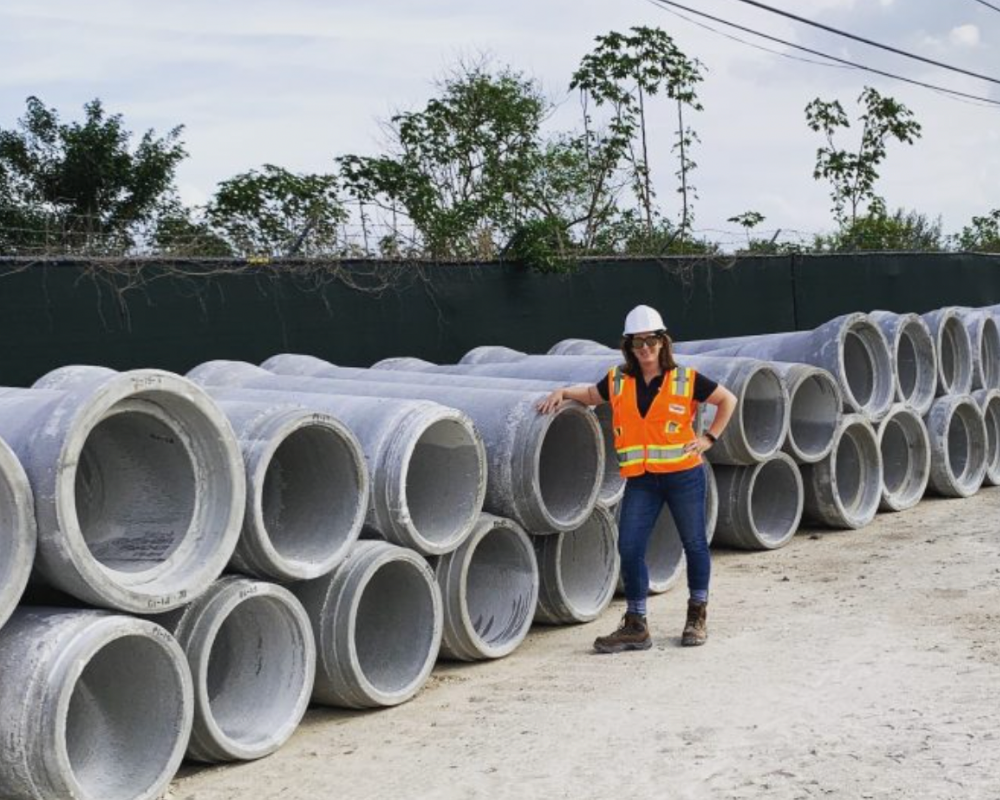
Sarah Matin, PE
Product Resource Engineer, Rinker Materials
Based in Florida, Sarah Matin is experienced in roadway design and utility management for large-scale design-build projects. She also is versed in concrete pipe design, proper installation and inspection specifications, and constructability of culvert systems. “Civil engineering has allowed me to work on a myriad of projects I never knew I could as a student and introduced me to many of my best friends.”
What’s your favorite thing about being an engineer? Every day is different. Also, having the ability to solve complex problems that positively affect everyday people.
What’s one lesson you’ve learned in this industry that’s stuck with you? Don’t be afraid to ask a question. Chances are, someone else is thinking the same thing.
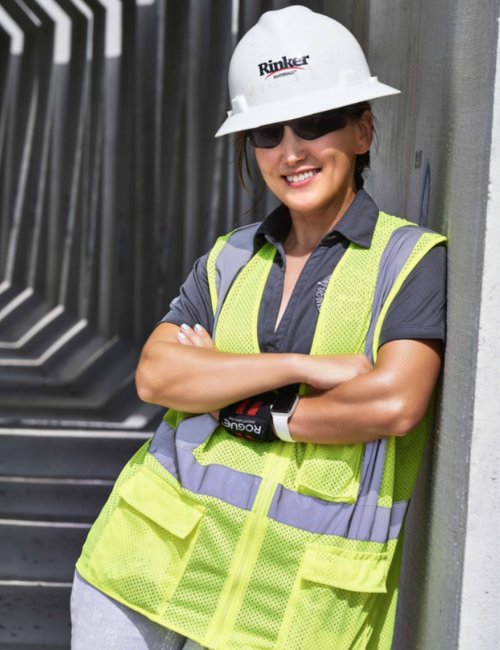
Alena Mikhaylova, PhD
Technical Promotions Engineer, Rinker Materials – Houston
Following in her father’s footsteps, Alena Mikhaylova pursued an engineering degree because “Engineering was the only thing I knew … I considered it the only option.” She now works for Rinker Materials, providing technical expertise on specifications for precast reinforced concrete pipe and boxes in Louisiana and south-central Texas.
What’s your most memorable project? Probably Texas DOT’s GPI 99 project, because of the design-build project delivery method and because of its scale. GPI 99 is part of a mobility program for Greater Houston, which has been ongoing for several years. When complete, the project will provide a 184-mile “Grand Parkway” loop around the city, traversing seven counties. Rinker is supplying more than 40,000 tons of products to the project’s Segment H&I portion, which spans 52 miles. Construction started in 2018 and will last through spring 2022.
If you were talking to a group of high school girls, what would you say to encourage them to become an engineer? I would say that engineering is for everybody, not just for boys. Girls typically do very well in engineering because they tend to be detail-oriented, and that’s the quality that is required of a good engineer. We need more female engineers to diversify the industry, to have different perspectives and to move the industry forward.
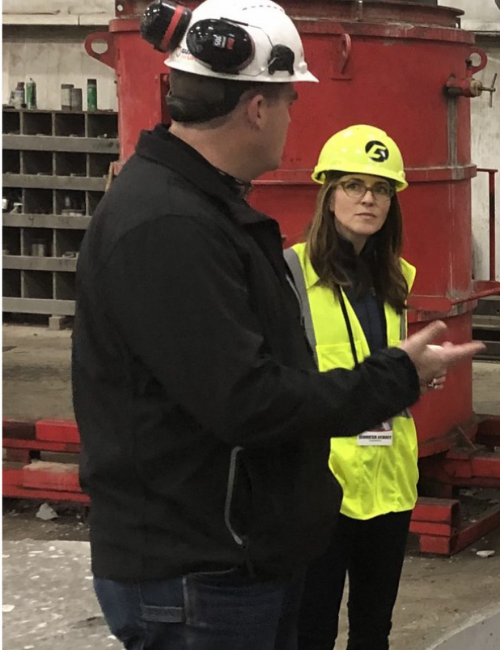
Jennifer Schaff, PE
Technical Resource Engineer, County Materials Corp.
Jennifer Schaff has a master’s degree from Michigan Technological University emphasizing geotechnical and water resources. For nearly 20 years, she worked as a consulting engineer on site/municipal projects with a heavy focus on stormwater. She now works for family-owned County Materials Corp., promoting and educating the benefits of manufactured concrete products with an emphasis on reinforced concrete pipe. “Be courageous, be positive and have passion in what you do. Good things will come out of your hard work!”
If you were talking to a group of high school girls, what would you say to encourage them to become an engineer? Don’t listen to the people who may try to discourage you! Set your goals and visualize them coming to life in detail. Continue this as a nightly practice before bed and greet each morning with gratitude. Also, learn how to communicate in pictures. I can’t tell you how many engineers want to convey their ideas in pages and pages of text, yet the projects we design and the messages we need to convey to the public must be in easy, understandable terms.
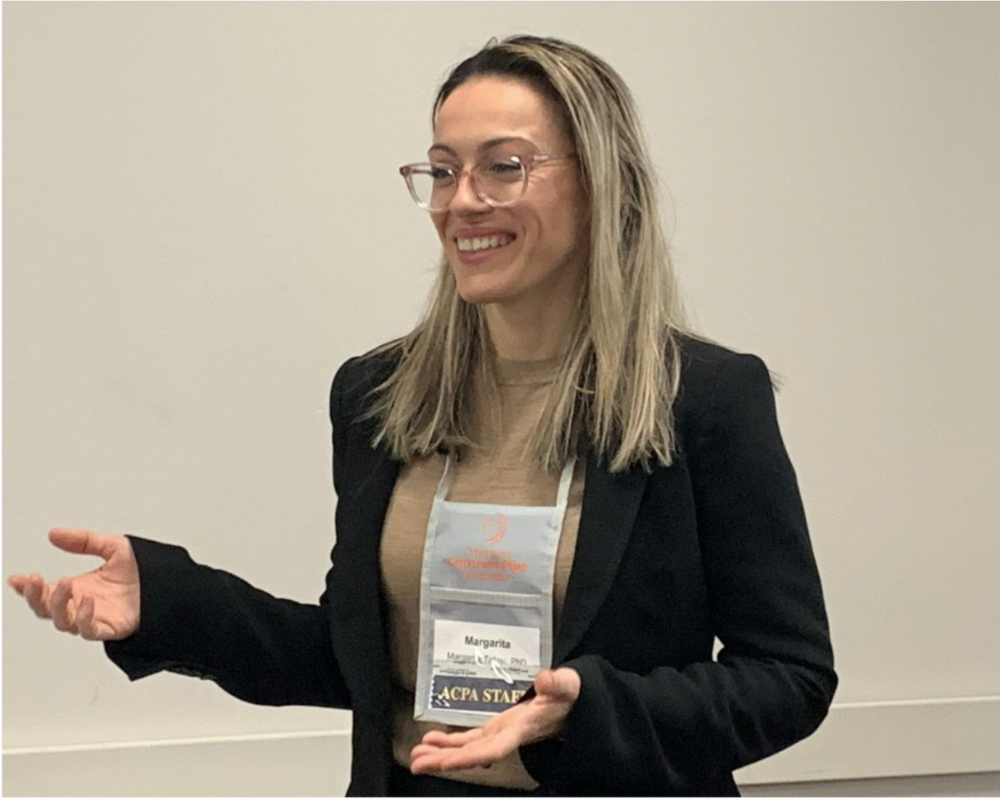
Margarita Takou, PhD
Technical Resources Manager, American Concrete Pipe Association
Margarita Takou is responsible for ACPA’s quality control program (QCast) and the ANSI accreditation associated with QCast. She also assists with developing appropriate standards for buried structures, developing software used to design these structures and helping engineers with technical questions. Margarita says she owes everything she has achieved to her mother, who has always inspired her by example. “It is now my turn to inspire my son to chase his dreams.”
What do you like most about working in the concrete pipe industry? Contributing to society with continuous improvement in every aspect related to the production and design of precast culvert products, which are an integral part of every city, small town, suburban area, etc. The footprint and impact of our work is reflected around the globe, and I feel very inspired to keep contributing to the improvement of our industry. I am also inspired by the people I work with. There is a lot of support for young professionals and space for them to grow in the industry.


